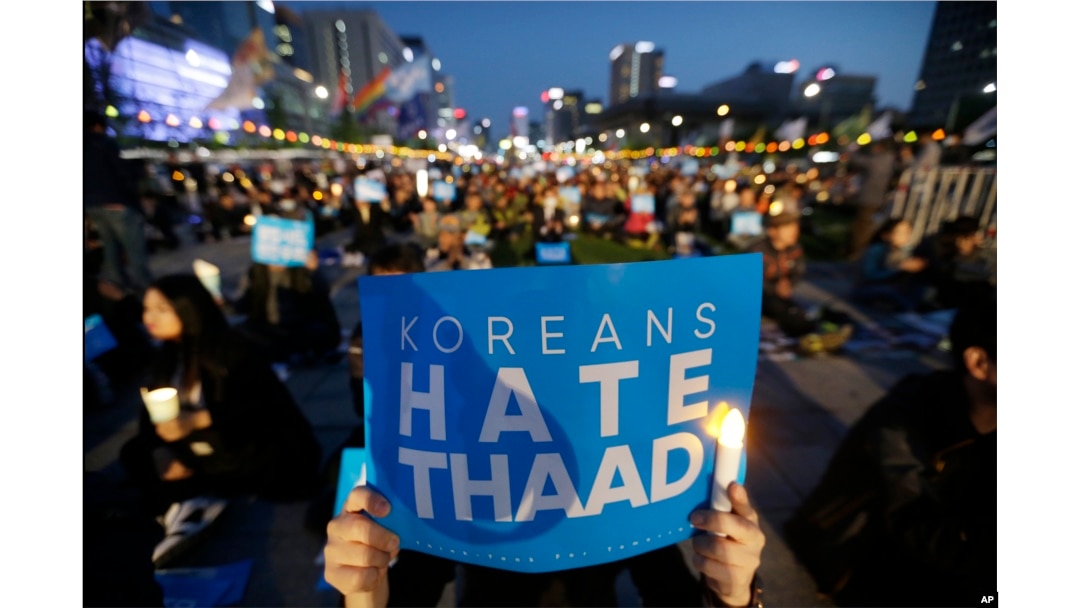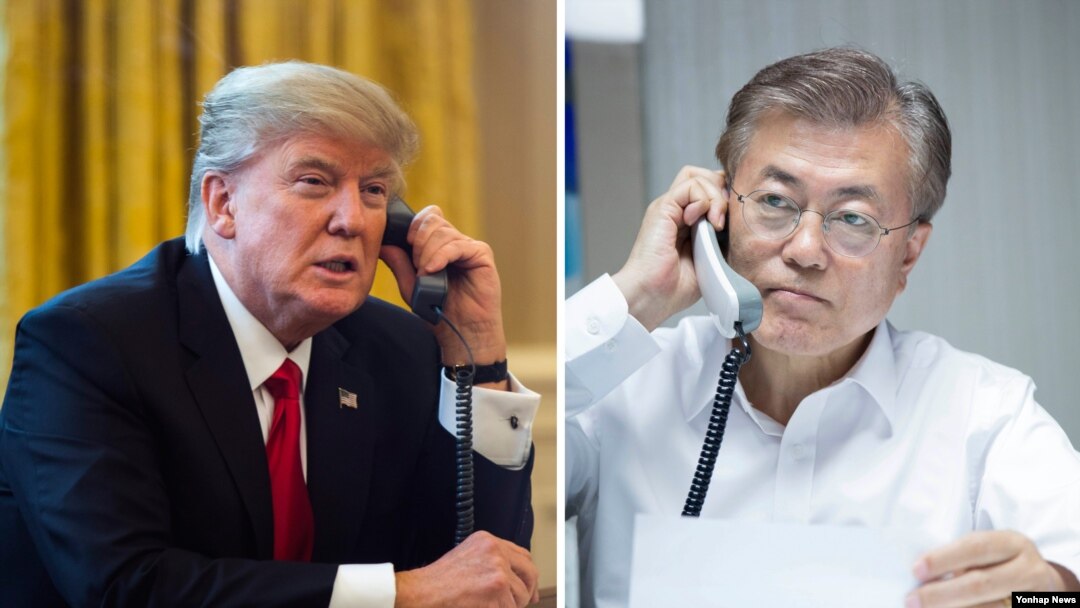U.S. President Donald Trump and new South Korean President Moon Jae-in agreed in a phone call Wednesday to closely cooperate in dealing with North Korea's nuclear weapons development program.
South Korean officials said that Trump, in the call on Moon's inauguration day, described issues involving Pyongyang's military ambitions as complicated, but ones that could be resolved.
Trump said the U.S.-South Korean relationship, long a bulwark against North Korean threats, was strong and invited Moon to visit Washington, the South Korean presidential office said.

FILE - A television screen shows a news program reporting about North Korea's missile firing, at Seoul Train Station in Seoul, South Korea, March 6, 2017.
The new South Korean leader, however, has taken a more conciliatory approach toward North Korea than Trump, who has dispatched a naval strike group to the waters off the Korean peninsula as a warning to the North against its nuclear missile development. Trump wants new sanctions against the regime of North Korean leader Kim Jong Un and further isolation for the reclusive communist nation.
Moon's assumption of power ends nearly a decade of hardline conservative rule in South Korea, with Seoul focused in years past on pressuring North Korea to curb its weapons development.
Moon, in his inaugural address, said, "If needed, I will fly directly to Washington. I will go to Beijing and Tokyo. And if conditions are met, I will go to Pyongyang. In order to bring about peace and security on the Korean Peninsula, I will do everything that I can."

FILE - South Korean protesters stage a rally to oppose a plan to deploy the advanced U.S. missile defense system called Terminal High-Altitude Area Defense, or THAAD, near U.S. Embassy in Seoul, South Korea, April 29, 2017.
The new South Korean leader has also been reluctant to support the deployment of the U.S. THAAD missile defense system, for which Trump recently demanded $1 billion in added defense costs. China also opposed the advanced weapons system as a threat to the region and has retaliated against South Korea with limits on tourism and imports.
Moon has played down policy differences with Washington. He has emphasized the importance of the U.S. alliance with South Korea and voiced confidence that Seoul and Washington ultimately want the same thing: to bring North Korea to the negotiating table to peacefully resolve the nuclear threat.
North Korea has yet to comment on Moon's election.


